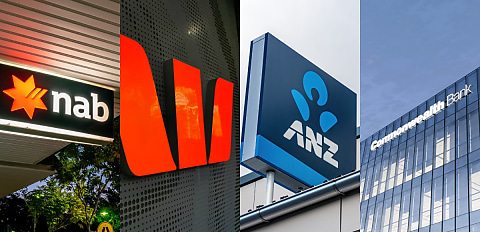The nation’s major bank economists expect nothing short of a minimum 25-bp hike for February.
The Reserve Bank of Australia will meet tomorrow (7 February) for its first cash rate decision of 2023.
There are now unanimous expectations from major bank economists that the central bank will raise the cash rate to at least 3.35 per cent tomorrow (7 February).
The growing certainty comes after the Australian Bureau of Statistics (ABS) posted the December quarter Consumer Price Index (CPI) last week. According to the December quarter data, annual CPI hit its highest level since 1990. The rise of 1.9 per cent in the December quarter 2022 took annual inflation to .7.8 per cent — a near 33-year high.
The figures are considered by the Reserve Bank of Australia (RBA) when they determine what Australia’s official cash rate should be.
ANZ: 25 bps expected but 50 bps will likely be considered
ANZ economists said they see the RBA tightening by 25 bps on Tuesday (7 February) given the strength of inflationary pressure.
“Intense domestic inflationary pressures, evident in the acceleration of non-tradeables and services inflation growth — both annualising around 8.5 per cent — have locked in a rate hike, in our view,” economists Catherine Birch, Felicity Emmett, Adelaide Timbrell, and Madeline Dunk said in a recent update.
“Another upgrade to inflation forecasts in the RBA’s February Statement on Monetary Policy will provide further support for an increase in the cash rate.”
ANZ also expects the RBA to lift its end-2023 trimmed mean inflation forecast from 3.8 per cent to 4.2 per cent.
“Importantly, we think the February forecasts will include a return to 3 per cent YoY inflation, which is the top of the target band, in Q2 2025,” it said.
The economists agreed that while a 25-bp hike is the most likely option, they expect the board to also consider a 50-bp hike as it has done ever since it moved to 25-bp hikes last October.
“Early signs of a slowdown in consumer spending (December retail sales and ANZ-observed spending data) and a softening in business conditions should be enough though for the RBA that demand is responding to higher rates, allowing it to stick to 25bp,” they said.
CBA calls a pause for March
Noting that headline inflation is still running strong, the Commonwealth Bank of Australia (CBA) has reiterated that it expects a 25-bp hike and then a pause in March.
It flagged weaker-than-expected employment growth, slowing retail sales, falling house prices, and large volumes of fixed-rate mortgages expiring as reasoning for a pause in the tightening cycle next month.
CBA’s head of Australian economics, Gareth Aird, stated: “The RBA maintained a hiking bias in December and with inflation still strong we expect them to deliver on this at their February Board meeting.
“We’re maintaining our forecast that they will raise the cash rate by 25bp to 3.35 per cent, before pausing the tightening cycle.
“However a larger hike of 40bp coupled with a stated intention to pause could also be on the table.”
RBA to hold nerve on soft landing, says NAB
National Australia Bank’s global markets economist, Taylor Nugent, has said he expects the central bank to ‘hold its nerve’ on a soft landing despite higher underlying CPI and wages.
“We expect the board will deliver another 25bp increase,” he said, adding that the bank will be keeping an eye out for the updated forecasts in the Statement on Monetary Policy, expected on Friday (10 February).
“We expect the forecasts to continue to draw a path to a soft landing, but the characterisation of the risks will be key to determine whether the RBA continues to be confident that it can return inflation to target without pushing rates deep into restrictive territory.”
25 bps likely, says Westpac
Westpac chief economist, Bill Evans, also said the bank thought it was “highly likely” that the RBA board will decide to raise the cash rate by 25 bps while “maintaining the guidance used in December for the next meeting”, which will be held on 7 March.
Noting the new Statement on Monetary Policy will also release this week, Mr Evans added: “With the unexpectedly rapid reopening of China; a mild European winter with associated lower energy prices; and justifiable expectations that the US Federal Reserve is nearing the end of its tightening cycle and as inflation reports continue to be encouraging (including this week’s report showing a further slowing in US wage inflation), there is good cause to be more optimistic about the global economy than at the time of the December Board meeting.”
More recently, the International Monetary Fund (IMF) described the Australian economy as having a “strong cyclical position” but assessed that tightening is still needed.
[Related: Australian economy on ‘narrow path to a soft landing’: IMF]
